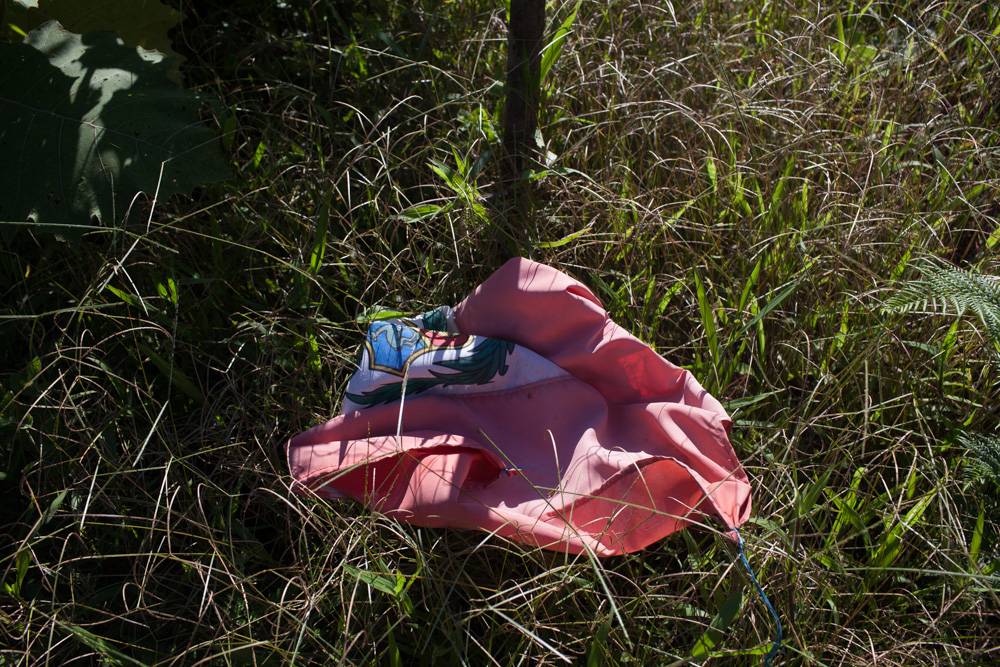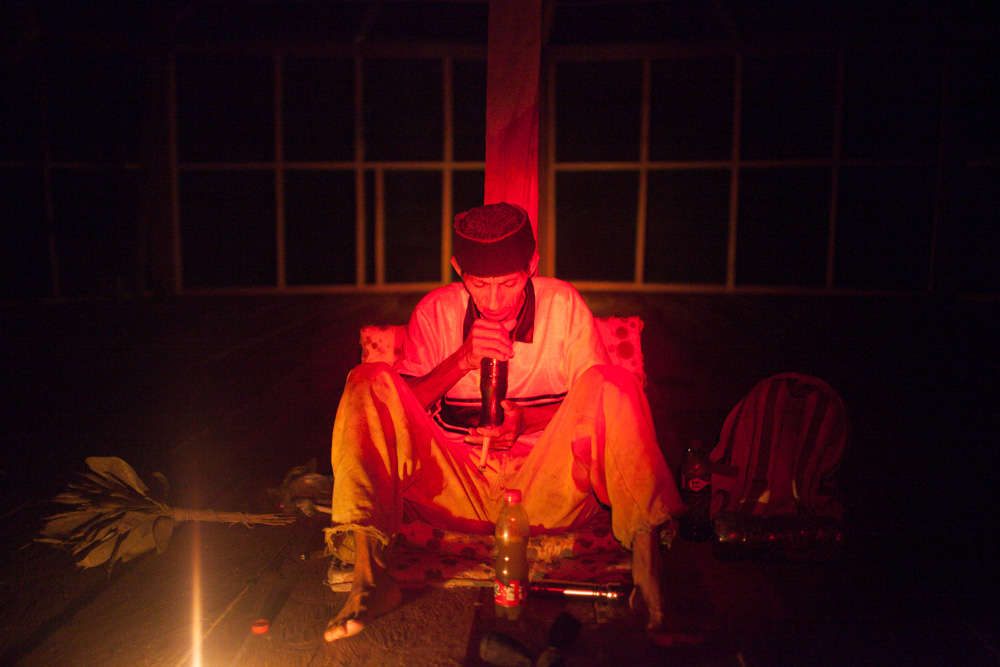Zygmunt Bauman: Modernity and the Holocaust (1989)
Modern culture is a garden culture. It defines itself as the design for an ideal life and a perfect arrangement of human conditions. It constructs its own identity out of distrust of nature. In fact, it defines itself and nature, and the distinction between them, through its endemic distrust of spontaneity and its longing for a better, and necessarily artificial, order. Apart from the overall plan, the artificial order of the garden needs tools and raw materials. It also needs defence against the unrelenting danger of what is, obviously, a disorder. The order, first conceived of as a design, determines what is a tool, what is a raw material, what is useless, what is irrelevant, what is harmful, what is a weed or a pest. It classifies all elements of the universe by their relation to itself. This relation is the only meaning it grants them and tolerates and the only justification of the gardener’s actions, as differentiated as the relations themselves. From the point of view of the design all actions are instrumental, while all the objects of action are either facilities or hindrances.
…
Współczesna kultura jest kulturą ogrodu. Definiuje się jako projekt idealnego życia i doskonałego zaaranżowania warunków ludzkiej egzystencji. Konstruuje swoją własną tożsamość z nieufności wobec natury. W istocie, definiuje się i naturę, i rozdział między nimi, poprzez edemiczną nieufność wobec spontaniczności i tęsknotę za lepszym, i koniecznie sztucznym, porządkiem. Poza ogólnym planem, sztuczny porządek ogrodu potrzebuje narzędzi i surowców. Potrzebuje też obrony przed nieustępliwym zagrożeniem, jakim jest oczywiście nieporządek. Porządek, najpierw pomyślany jako projekt, determinuje co jest narzędziem, co jest surowcem, co jest zbędne, co jest szkodliwe, co jest chwastem a co szkodnikiem. Klasyfikuje wszystkie elementy wszechświata poprzez ich stosunek do siebie samego. Ta relacja jest jedynym znaczeniem jakie im przyznaje, i jedynym usprawiedliwieniem działań ogrodnika, tak zróżnicowanych jak same te relacje. Z punktu widzenia projektu, wszystkie akcje są instrumentalne, podczas gdy wszystkie obiekty akcji są albo ułatwieniem, albo przeszkodą.
Modern genocide, like modern culture in general, is a gardener’s job. It is just one of the many chores that people who treat society as a garden need to undertake. If garden design defines its weeds, there are weeds wherever there is a garden. And weeds are to be exterminated. Weeding out is a creative, not a destructive activity. It does not differ in kind from other activities which combine in the construction and sustenance of the perfect garden. All visions of society-as-garden define parts of the social habitat as human weeds. Like other weeds, they must be segregated, contained, prevented from spreading, removed and kept outside the society boundaries; if all these means prove insufficient, they must be killed.
…
Współczesne ludobójstwo, jak współczesna kultura generalnie, to robota ogrodnika. To tylko jedna z wielu robót jakie ludzie traktujący społeczeństwo jak ogród muszą wykonać. Jeżeli projekt ogrodu definiuje swoje chwasty, są chwasty wszędzie tam gdzie jest ogród. A chwasty mają być eksterminowane. Usuwanie chwastów jest działaniem kreatywnym, nie destruktywnym. Nie różni się w swym rodzaju od innych aktywności, które łącznie dążą do budowy i utrzymania doskonałego ogrodu. Wszystkie wizje społeczeństwa jako ogrodu definiują część społecznego habitatu jako ludzkie chwasty. Jak inne chwasty, muszą być one wydzielone, opanowane, powstrzymane od rozprzestrzeniania się, usunięte i trzymane na zewnątrz społecznych granic, jeżeli te środki okażą się niewystarczające, muszą być zabite.
Stalin’s and Hitler’s victims were not killed in order to capture and colonize the territory they occupied.
Often they were killed in a dull, mechanical fashion with no human emotions – hatred included – to enliven it. They were killed because they did not fit, for one reason or another, the scheme of a perfect society. Their killing was not the work of destruction, but creation. They were eliminated, so that an objectively better human world, more efficient, more moral, more beautiful could be established. A Communist world. Or a racially pure, Aryan world. In both cases, a harmonious world, conflict-free, docile in the hands of their rulers, orderly, controlled. People tainted with ineradicable blight of their past or origin could not be fitted into such unblemished, healthy and shining world. Like weeds, their nature could not be changed. They could not be improved or re-educated. They had to be eliminated for reasons of genetic or ideational heredity of a natural mechanism resilient and immune to cultural processing.
…
Ofiary Stalina i Hitlera nie były zabite w celu przejęcia i skolonizowania terytorium jakie zajmowały.
Często zabite były w nudny, mechaniczny sposób, bez ludzkich emocji – wliczając w to nienawiść – ożywiających ten proces. Były zabite ponieważ nie pasowały, z tego lub innego powodu, do schematu doskonałego społeczeństwa. Ich zabijanie nie było pracą niszczenia, ale tworzenia. Były eliminowane, aby obiektywnie lepszy ludzki świat, bardziej efektywny, bardziej moralny, bardziej piękny został ustanowiony. Świat komunistyczny. Albo rasowo czysty, świat aryjski. W obu wypadkach, harmonijny świat, wolny od konfliktu, pokorny pod władaniem jego panów, uporządkowany, pod kontrolą. Ludzie naznaczeni nieusuwalną skazą ich przeszłości lub pochodzenia nie mogli być dopasowani do takiego nieskazitelnego, zdrowego i lśniącego świata. Jak chwasty, ich natury nie dało się zmienić. Nie mogli być naprawieni albo reedukowani. Musieli być usunięci z powodów genetycznego czy ideowego dziedziczenia, naturalnego mechanizmu odpornego na kulturowe manipulacje.
The two most notorious and extreme cases of modern genocide did not betray the spirit of modernity. They did not deviously depart from the main track of the civilizing process. They were the most consistent, uninhibited expressions of that spirit. They attempted to reach the most ambitious aims of the civilizing process most other processes stop short of, not necessarily for the lack of good will. They showed what the rationalizing, designing, controlling dreams and efforts of modern civilization are able to accomplish if not mitigated, curbed or counteracted.
These dreams and efforts have been with us for a long time. They spawned the vast and powerful arsenal of technology and managerial skills. They gave birth to institutions which serve the sole purpose of instrumentalizing human behavior to such an extent that any aim may be pursued with efficiency and vigor, with or without ideological dedication or moral approval on the part of the pursuers. They legitimize the rulers’ monopoly on ends and the confinement of the ruled to the role of means. They define most actions as means, and means as subordination to the ultimate end, to those who set it, to supreme will, to supra-individual knowledge.
…
Dwa najbardziej niesławne i ekstremalne przypadki współczesnego ludobójstwa nie zdradziły ducha współczesności. Nie odbiegły od głównego szlaku procesu cywilizowania. Były najbardziej spójnymi, nieskrępowanymi wyrazami tego ducha. Próbowały sięgnąć po najbardziej ambitne cele procesu cywilizowania, przed jakimi zatrzymuje się większość innych procesów, niekoniecznie z powodu braku dobrej woli. Pokazały co racjonalizacja, projektowanie, sny o kontroli i wysiłki współczesnej cywilizacji są w stanie osiągnąć jeżeli nie są powstrzymywane, ograniczone czy przeciwdziałane.
Te marzenia i wysiłki były z nami od długiego czasu. Zrodziły ogromny i potężny arsenał technologii i umiejętności zarządzania. Zrodziły instytucje, które służą wyłącznemu celowi instrumentalizacji ludzkiego zachowania do tego stopnia, że do jakiegokolwiek celu można dążyć z efektywnością i wigorem, z lub bez ideologicznego zaangażowania lub moralnej zgody ze strony tych co do niego podążają. Legitymizują monopol władców nad celami i uwięzienie poddanych w roli środków. Definiują większość działań jako środki a środki jako podporządkowane ostatecznemu celowi, tym którzy go definiują, najwyższej woli, supra-indywidualnej wiedzy.
Emphatically, this does not mean that we all live daily according to Auschwitz principles. From the fact that the Holocaust is modern, it does not follow that modernity is a Holocaust. The Holocaust is a by-product of the modern drive to a fully designed, fully controlled world, once the drive is getting out of control and running wild. Most of the time, modernity is prevented from doing so. Its ambitions clash with the pluralism of the human world; they stop short of their fulfillment for the lack of an absolute power absolute enough and a monopolistic agency monopolistic enough to be able to disregard, shrug off, or overwhelm all autonomous, and thus countervailing and mitigating, forces.
…
Należy podkreślić, to nie oznacza, że wszyscy żyjemy na codzień według reguł Auschwitz. Z faktu, iż holokaust jest współczesny, nie wynika, że współczesność to holokaust. Holokaust to produkt uboczny nowoczesnego pędu do w pełni zaprojektowanego, w pełni kontrolowanego świata, kiedy ten pęd wyrwie się spod kontroli. Przez większość czasu, współczesność jest od tego powstrzymywana. Jej ambicje ścierają się z pluralizmem ludzkiego świata, zatrzymują się przed pełnym spełnieniem z powodu braku wystarczająco absolutnej władzy, monopolistycznego czynnika sprawczego na tyle monopolistycznego by nie zwracać uwagi czy zdominować wszystkie autonomiczne, a tym samym przeciwdziające mu siły.
So, may I add some punk advice to this serious analysic, is there any defence then? What can a simple individual do against the Monster arising? Perhaps, cultivate some cracks, cultivate chaos? Beware of Order and Mind getting out of hand. Let the bush grow in your backyard and in your views. Construct, play, let it decay, and bow down before the Holy Error. Embrace the weeds, half-rotten apples, the wild, unpredictable, the sickness and failure. Preventing monoculture of your strict and ordered views, hegemony of controlling mind you may prevent holocaust of your emotions, of your instincts and feeling, and this may well be the best way of preventing the holocaust of the wilderness and freedom without.
…
Jeżeli nie będzie impertynencją doklejać kawałek punkowej mądrości do tej poważnej analizy z pierwszej ligi, zapytałbym czy jest jakaś obrona? Co może zrobić jednostka by powstrzymać wyłonienie się Potwora? Kultywować pęknięcia, kultywować chaos. Wypatrywać patologii Porządku i Umysłu wymykających się poza równowagę. Pozwolić dziczy rosnąć na waszym/naszym podwórku i w poglądach. Konstruować, bawić się ale pozwolić na rozpad, klęknąć przed Świętym Błędem. Ukochać chwasty, na wpół zgniłe jabłka, to co dzikie, nieprzewidywalne, zaskoczenie, chorobę i niepowodzenie. Zapobieganie monokulturze zawsze spójnych, ścisłych i uporządkowanych poglądów, hegemonii kontrolującego umysłu może zapobiec holokaustowi własnych emocji, instynktów, czucia, i może być najlepszym sposobem zapobieżenia holokaustowi dzikości i wolności na zewnątrz.







